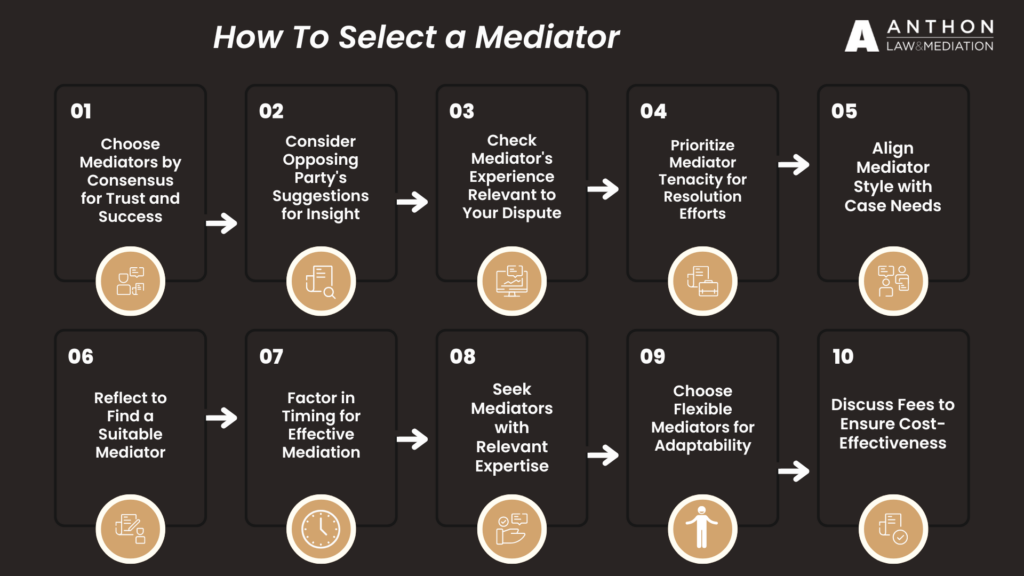Should You Choose Mediation in Divorce?
Ending a marriage is never easy. It’s one of life’s most emotionally challenging experiences—full of unknowns, hard conversations, and heartache. But while divorce is often portrayed as a battle fought in courtrooms, the truth is, it doesn’t have to be that way.
For many couples, mediation in divorce cases offers a gentler, more constructive path forward. It allows spouses to find common ground, make important decisions together, and move on with dignity, without the courtroom showdown’s stress, conflict, and cost.
If you’re considering divorce or are already in the early stages, understanding how mediation works and whether it’s the right option for you can make a world of difference.
What Is Divorce Mediation—and Why Does It Matter?
Mediation is a peaceful alternative to the traditional court-based divorce process. Instead of presenting your case before a judge who makes all the decisions, you and your spouse sit down with a trained, neutral third party called a mediator.
The mediator isn’t there to take sides or issue rulings. Their role is to guide your conversation, help clarify what matters most to each of you, and support you in reaching mutual agreements on important issues—things like parenting plans, dividing property, and determining financial support.
In many counties, the court encourages or even requires mediation before a case can proceed to trial. But even when it’s not mandatory, couples often choose it voluntarily because it gives them more control over their outcome, and frequently, more peace of mind.

Why Choose Mediation? More Control, Less Conflict
Divorce mediation offers a different tone than the traditional courtroom experience. It’s not about blame or “winning.” It’s about finding a way forward—together—with dignity, cooperation, and mutual respect. Mediation creates a healthier space for many couples to make important decisions about their future.
Unlike court, mediation happens in private. You can speak freely, knowing your conversations are confidential and focused on resolution—not confrontation. It’s a more personal, flexible, and often faster approach to navigating divorce.
Here’s why many couples find mediation to be the better path:
- Private and Confidential: Conversations stay between you, your spouse, and the mediator—not on the public record.
- Faster Resolution: Mediation often begins quickly and avoids the typical months of court delays.
- Lower Cost: Fewer filings, less attorney time, and a streamlined process can mean significant savings.
- Greater Control: You and your spouse make the decisions—not a judge who doesn’t know your story.
- Reduced Stress: With less conflict and more cooperation, mediation supports a smoother emotional journey.
- Better for Families: Mediation fosters respectful communication—especially important for co-parenting after divorce.
What Can Be Resolved Through Divorce Mediation?
The short answer: nearly everything.
Through mediation, couples can agree on all the core elements of divorce—things like how to divide property, how much spousal support will be paid (if any), and how you’ll handle parenting and child support responsibilities.
In states like Idaho, child custody issues may be governed by a separate court rule, but mediation is often the first step. The flexibility of mediation allows parents to build custom parenting plans that honor their unique family dynamics, rather than following a one-size-fits-all court order.
Mediation can resolve future disputes or modify agreements when life changes, such as relocation, job changes, or new parenting needs, even after a divorce is finalized.

The Role of Attorneys in Divorce Mediation
It’s a common misconception that mediation means you don’t need a lawyer. While the mediator facilitates discussions, they cannot give legal advice or advocate for either side.
That’s why it’s so important for each spouse to have their own attorney. Your lawyer can help you prepare for mediation, review any proposed agreements, and ensure your rights are protected every step of the way.
In more complex or contentious situations, attorneys may even attend the mediation sessions with you, serving as both a guide and an advocate during negotiations.
Mediation is about collaboration, but it should never come at the cost of fairness or legal security.
What Happens During Mediation? A Step-By-Step Guide
Divorce mediation is a structured, confidential process that helps couples resolve issues without going to court. Here’s a condensed look at what to expect:
- Agree to Mediate
Mediation begins when both spouses agree—or are ordered by the court—to try resolving their issues outside of litigation. - Choose a Mediator
Select a neutral, qualified mediator—often from a court-approved list. Mediators may be lawyers, counselors, or professionals trained in family conflict. - Prepare for Sessions
Each spouse may submit a summary of their goals and concerns to help the mediator understand the situation. - Attend Private Sessions
Mediation takes place in a confidential setting. You may sit in the same room or separately, with the mediator facilitating communication. - Work Through Key Issues
Topics often include parenting time, custody, finances, property division, and spousal or child support. - Reach and Review Agreements
Once terms are agreed upon, the mediator drafts the agreement. Each party’s attorney can review it before submission to the court. - Finalize in Court
The agreement is filed with the court and becomes legally binding once approved by a judge.

When Mediation Doesn’t Fit: Knowing the Red Flags
While mediation is incredibly helpful in many divorce cases, it’s not right for everyone.
If there has been a history of abuse or controlling behavior, mediation may not provide a safe or balanced environment. In such cases, the power dynamics can prevent honest negotiation and lead to unjust outcomes. Courts and attorneys may advise that these situations are better handled through traditional litigation, where safety measures and legal protections are firmly in place.
Another red flag is a lack of transparency. Mediation relies on both parties being honest and forthcoming about their finances, goals, and concerns. If one spouse is hiding assets or intentionally misleading the other, the process can break down quickly and may lead to an unfair settlement.
Similarly, mediation may not be productive if one party refuses to participate in good faith, continuously reschedules sessions, or insists on “winning” rather than finding a compromise.
It’s also worth considering whether your divorce involves complex financial matters, such as business ownership, large investments, or property across multiple states. Mediation can still work in these cases—but you’ll likely need financial experts and more involved legal representation to support the process.
Mediation vs. Other Paths
Mediation is just one way to navigate divorce—and while it’s ideal for many, it’s not the only choice. Understanding your options can help you make the best decision for your situation.
Some couples prefer collaborative divorce, where both sides work with attorneys and experts to reach an agreement outside of court. In high-conflict cases or when safety is a concern, litigation may be necessary, with a judge making the final decisions.
Here’s a quick comparison:
- Mediation – Private, cooperative, and cost-effective
- Collaborative Divorce – Team-driven with legal support
- Litigation – Court-controlled and often more adversarial
Moving Forward with Dignity and Support
At the heart of mediation in divorce cases is a simple, powerful idea: that two people can end a shared story with mutual respect and thoughtful conversation. Mediation won’t fix everything—but it can help you untangle what was, and begin building what comes next—with compassion, clarity, and control.
If you’re considering divorce, know you don’t have to walk through it alone. A caring attorney and a skilled mediator can make all the difference. Take the first step. Ask questions. Explore your options.
If you need to speak with an attorney about mediation, send us a message.





